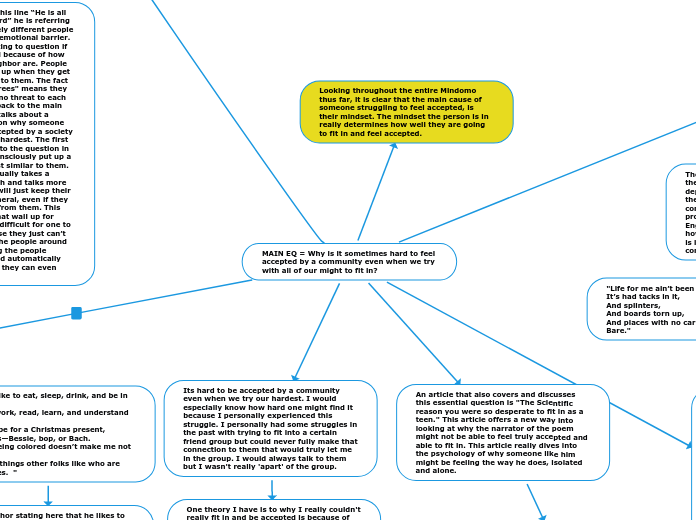da Justin Mazzella mancano 5 anni
733
MAIN EQ = Why is it sometimes hard to feel accepted by a community even when we try with all of our might to fit in?

da Justin Mazzella mancano 5 anni
733

Più simili a questo
This quote really talks about how their life wasn't all perfect and there were a lot of moments in it where it was painful. This was seen in the first line of the quote where it talks about a crystal stair in terms of life. When she says life is not a crystal stair, she is referring to the idea that her life was not all pretty and smooth. The splinters here refer to the moments in her life that were painful emotionally but not life threatening but made life harder. All in all this is talking about how her life was hard and telling her son about it because he could be having a hard time fitting in.